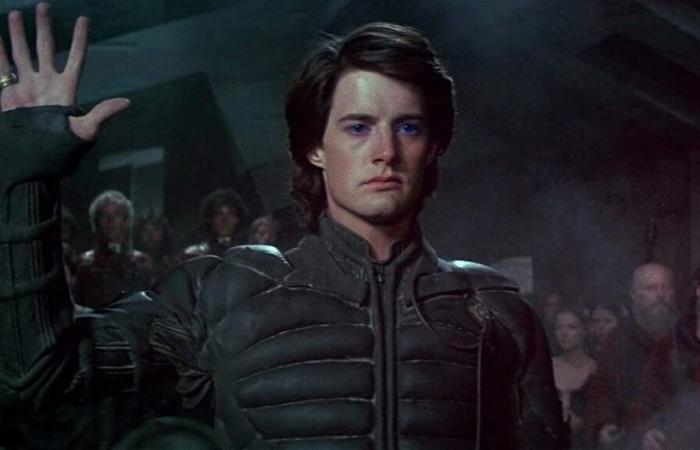
News culture “I don’t think it would have made the fans happy” Ridley Scott could have adapted this sci-fi saga that rivals Star Wars
Published on 01/12/2025 at 7:45 p.m.
Share :
While David Lynch’s film Dune has just celebrated its fortieth anniversary, we take a look back at the aborted adaptation project directed by Ridley Scott in the early 1980s.
Dune according to Ridley Scott
Decades before Dune by Denis Villeneuve, it was David Lynch who directed the very first film adaptation of Frank Herbert’s book. At the time, this film flopped at the box office and was rejected by fans of the original work, before becoming a cult feature film over time.
But a few before this film, another legendary filmmaker was to offer his adaptation of Dune. In the early 80s, Ridley Scott was actually supposed to direct the very first Dune film, before the project was aborted because the filmmaker did not see himself filming in Mexico.
We did a very good adaptation of Dune, because at the beginning I worked closely with the screenwriter. I was always looking for the look of the film to match what he or she was writing. And then (producer) Dino (De Laurentiis) contacted me and we said, “We wrote a script, and the script is really good.” Then Dino said, “It’s expensive, we’ll have to do it in Mexico.” I said, “What!” He said, “In Mexico.” I said, “Really?” So he sent me to Mexico. And with all due respect to Mexico City, at the time, it was pretty disgusting. I didn’t like it. I went to the studio in Mexico where the floors were dirt. I said, “No, Dino, I don’t want this to be an ordeal.” And so I went back and switched to Legend.
A poorly received scenario
At the time, screenwriter Rudy Wurlitzer was responsible for the adaptation. “Adapting Dune was one of the most difficult projects I have ever done,” the author said in 1984. Wurlitzer assured that the essence of the book had been preserved in this script, but nevertheless “rarefied”. And if Ridley Scott affirms that Mexico is the main cause of the abandonment of the project, other sources also question the scenario, which, although close to Herbert’s text, was certainly considered too dark and violent. The author of Dune himself reportedly had many reservations about the script. IGN devoted a partial analysis of this script, written with the help of experts. In summary, we must understand that Wurtlitzer had decided to emphasize the message that Frank Herbert was trying to convey by exaggerating the darkest aspects of Paul Atreides. In this script, Paul is less a victim of his destiny than an ambitious young man, who willingly accepts his role as dictator. Add to this other choices criticized by Herbert, such as an incestuous erotic sequence between Paul and his mother, and we quickly understand why the scenario ended up being put aside. For Mark Bennett, who has been running a blog dedicated to Dune for almost thirty years, the film would also have disappointed fans because of the liberties taken by Wurlitzer. “I don’t think it would have made Dune fans happy. Too many deviations from the novel and too much ‘magic’, something Herbert’s novel avoids.” In any case, it is clear that Denis Villeneuve’s film, which is by far the most popular adaptation of Dune, is closer to Scott and Wurlitzer’s version than to Lynch’s. But ultimately, we can only imagine what this project would have looked like.





